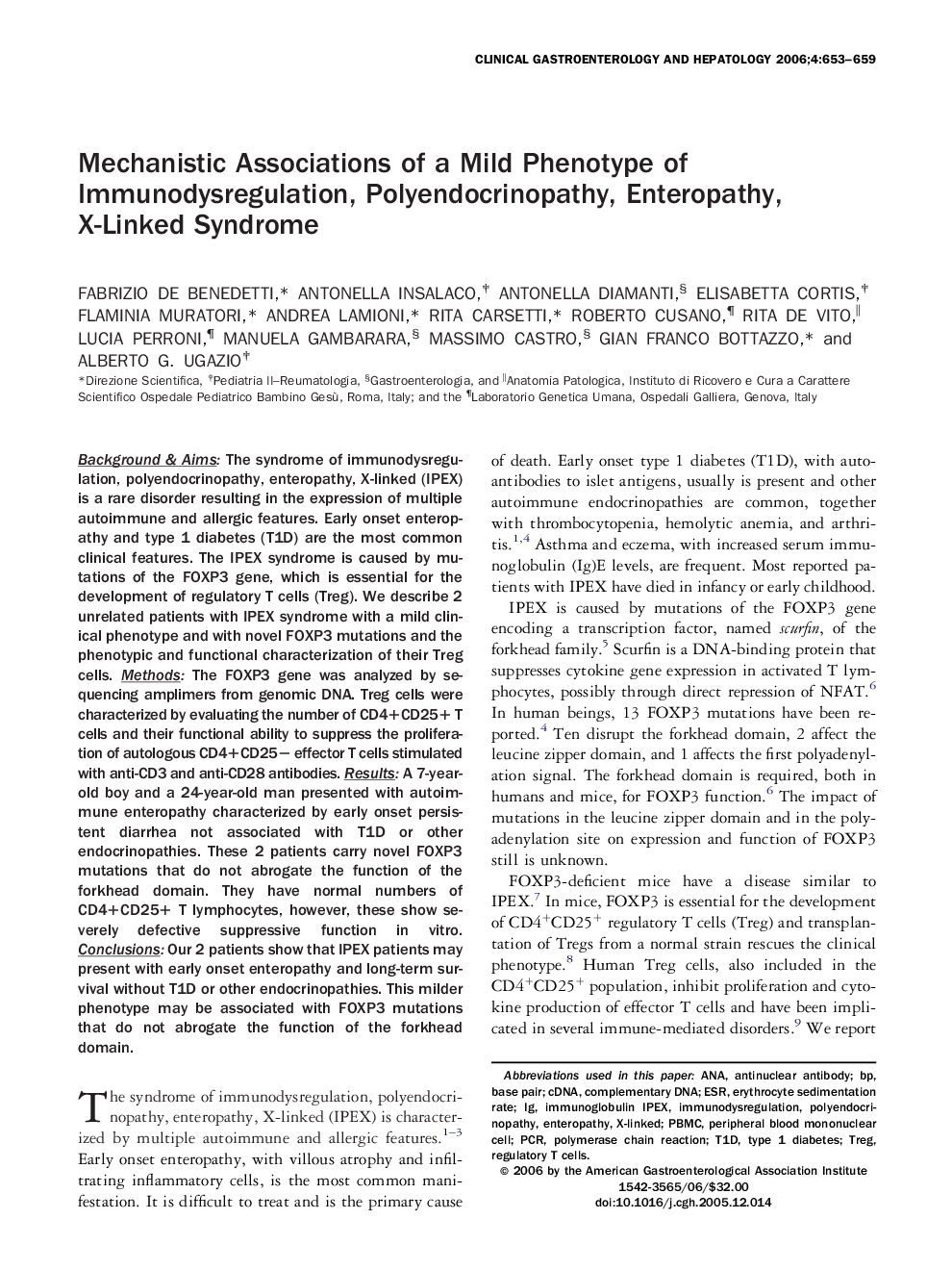| Article ID | Journal | Published Year | Pages | File Type |
|---|---|---|---|---|
| 3285816 | Clinical Gastroenterology and Hepatology | 2006 | 7 Pages |
Abstract
Background & Aims: The syndrome of immunodysregulation, polyendocrinopathy, enteropathy, X-linked (IPEX) is a rare disorder resulting in the expression of multiple autoimmune and allergic features. Early onset enteropathy and type 1 diabetes (T1D) are the most common clinical features. The IPEX syndrome is caused by mutations of the FOXP3 gene, which is essential for the development of regulatory T cells (Treg). We describe 2 unrelated patients with IPEX syndrome with a mild clinical phenotype and with novel FOXP3 mutations and the phenotypic and functional characterization of their Treg cells. Methods: The FOXP3 gene was analyzed by sequencing amplimers from genomic DNA. Treg cells were characterized by evaluating the number of CD4+CD25+ T cells and their functional ability to suppress the proliferation of autologous CD4+CD25â effector T cells stimulated with anti-CD3 and anti-CD28 antibodies. Results: A 7-year-old boy and a 24-year-old man presented with autoimmune enteropathy characterized by early onset persistent diarrhea not associated with T1D or other endocrinopathies. These 2 patients carry novel FOXP3 mutations that do not abrogate the function of the forkhead domain. They have normal numbers of CD4+CD25+ T lymphocytes, however, these show severely defective suppressive function in vitro. Conclusions: Our 2 patients show that IPEX patients may present with early onset enteropathy and long-term survival without T1D or other endocrinopathies. This milder phenotype may be associated with FOXP3 mutations that do not abrogate the function of the forkhead domain.
Keywords
Related Topics
Health Sciences
Medicine and Dentistry
Gastroenterology
Authors
Fabrizio De Benedetti, Antonella Insalaco, Antonella Diamanti, Elisabetta Cortis, Flaminia Muratori, Andrea Lamioni, Rita Carsetti, Roberto Cusano, Rita De Vito, Lucia Perroni, Manuela Gambarara, Massimo Castro, Gian Franco Bottazzo, Alberto G. Ugazio,
